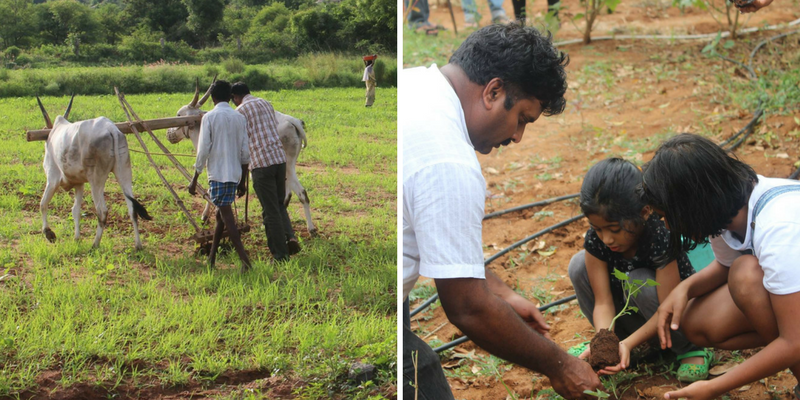In a quest for sustainable living, these IT professionals from Bengaluru have set up a nature farm
Bettada Budadha Thota is a community natural farm aimed at growing the food that we eat. The group believes in being local so that one can get to eat locally grown fresh food.
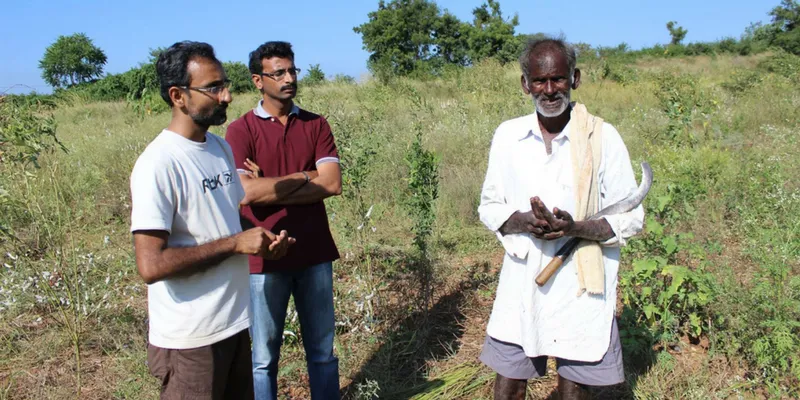
The need to ‘relocalise’ and getting back to the roots is catching the attention of most urban dwellers today. People are realising that farming is the way ahead, and going back to nature is the first step towards living sustainably. Here’s a group of IT professionals from Bengaluru who don’t just believe in going organic; they’re showing how it’s done.
Oota from your Thota
Rajendra Hegde and I were part of an NGO called Garden City Farmers, the brainchild of Viswanath Kadur, which promotes urban farming, and also conducts the event called ‘Oota from your Thota,’ says Laxminarayan S, one of the founders of Bettada Budadha Thota.
He is an engineer by profession, working in the IT industry for over 18 years. His love for nature and his accidental interaction with Viswanath made him get into gardening and then farming.
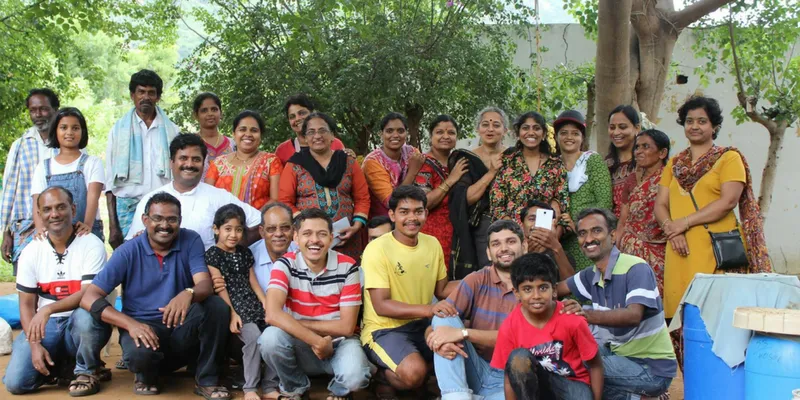
Oota from your Thota, which means ‘food from your garden’ in Kannada, is a one-day organic vegetable gardening event in Bengaluru. It makes various gardening tools available under one roof along with technical know-how. It also brings together various organic farming related enterprises. Visitors can pick up seeds, saplings, herbs, compost, eco-friendly cosmetics, organic produce directly from farmers and everything else to make their choices sustainable.
The intent was to sensitise people about growing one’s own food. This urban farming initiative picked up quickly and a lot of people joined together to create rooftop gardens.
"With this knowledge, we felt the need to experiment beyond the constricted space of a balcony/rooftop and led us to starting the farm. Bettada Budadha Thota was started towards the end of 2012. We were 11 of us when we started and continue to be together today,” says Laxminarayan.
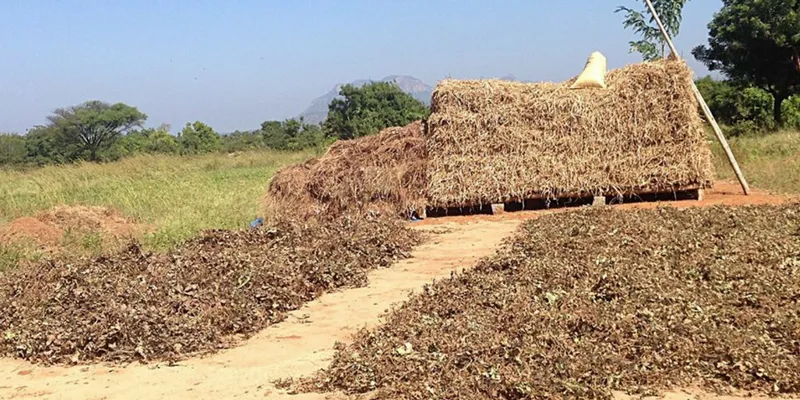
Just about 75 kilometres away from the city of Bengaluru, nestled at the foothills of the Malavalli taluk in Mandya district is a nature farm, the Bettada Budadha Thota run by the IT professionals.
Challenges of being sustainable
All of the members are passionate to learn. This, coupled with some roots in farming from earlier generations, made it easier for the group to come together and start the farm.
Rajendra Hegde, who has a PhD in Entomology, provides insights to help the learning in the group.The group members, who had already had tried their hand at gardening in their balconies and rooftops, were experienced, equipped and looking forward to getting the farm started.
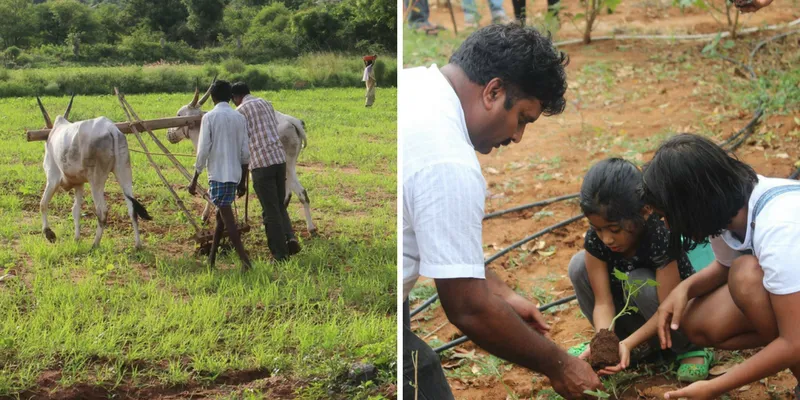
The farm is natural/organic, and we don’t use any chemicals fertilisers or chemical pesticides in our farm. We have seen many methods of framing: biodynamic, organic, zero budget natural farming, permaculture and so on, we can say we either don’t follow any one method or we kind of pick and choose what’s best at that moment, says Laxminarayanan.
Laxminarayanan talks about the challenges of getting into agriculture, and says that many with experience will say that agriculture is not a sustainable profession anymore, with all the globalisation, natural uncertainties, and having to deal with middlemen to ensure a supply chain.
These are challenges that everyone getting into farming faces today. Unless and until a farmer gets into allied activities along with farming, sustainability is extremely difficult, he says.
Growing local crops
The farm is located in what is categorised as dry land area and many of the fellow farmers grow mulberry (sericulture) for their sustenance as that is the commercial crop practised here. The founders of the farm consciously decided not to get into commercial crops and grow only food crops. They tried to grow food crops firstly for their personal consumption. Later they planned to share/sell amongst their friends and family.
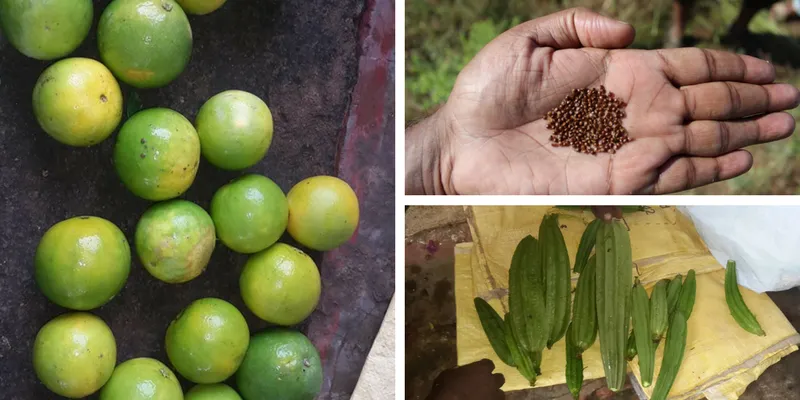
The crops that the farm grows are millets (ragi, kodo millet, little millet etc), pulses (toor, moong, cowpea, horsegram etc), spices (chilli, coriander, methi etc), fruits (all possible seasoned fruits that fit the growing region), vegetables (greens and common veggies) and a few medicinal herbs. We also grow some forest trees that contribute raw materials that help us produce our own compost.
Upon asking if they sustain on the farm for all their needs, Laxminarayanan says,
No, so far we are not completely sustainable and there’s a long way to go. Today, considering that our area has experienced successive droughts for the past few seasons, the farm is providing us about 20-30 percent of our food needs and our goal is to increase the share and reach 70-80 percent in the near future.
The farm is frequented by wild boars, peacocks and elephants, and is now popular with visitors from the city.
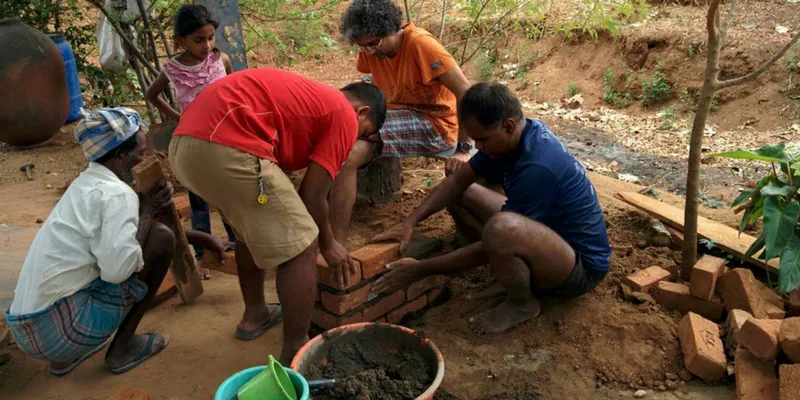
About a dozen groups have visited the farm, while volunteers from India and abroad have participated in tree-planting and farming. Every year, 250 saplings are planted.
“We are not certified organic and don't intend to be. Organic doesn't only come by certification, but we feel organic is how you treat your environment than only growing your food. So the final goal is to live in harmony with nature. We believe regulation doesn't make us organic but how we blend with nature to grow our food makes us organic. If that's a cause for concern to be called organic, we prefer to remain local,” says Laxminarayanan.






